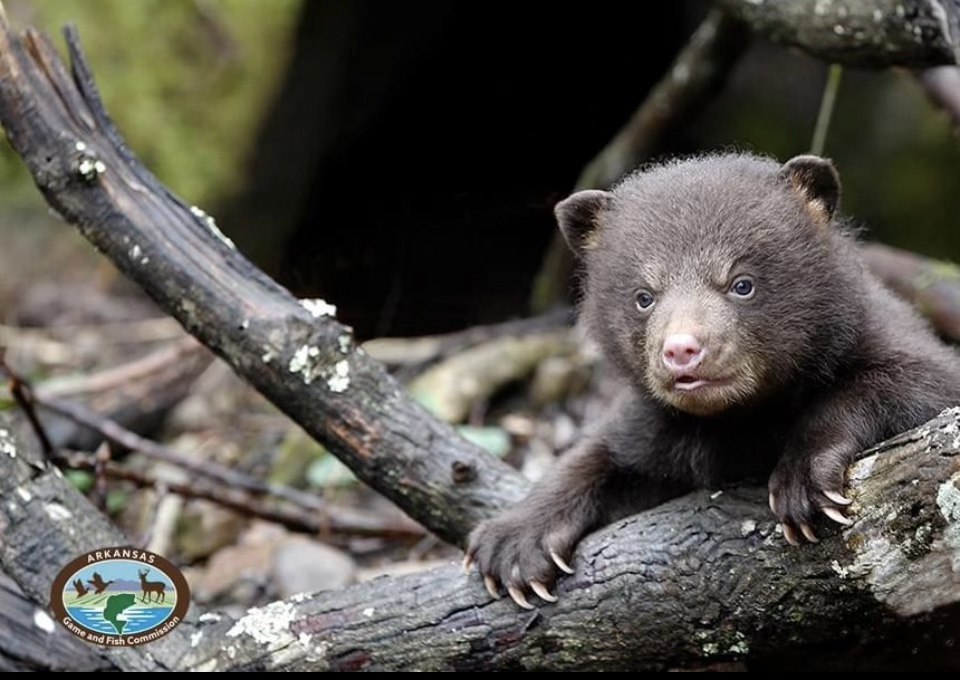Spring has sprung in the Natural State and with that young bears are on the move and sometimes getting themselves into mischief.
🐻 What kind of bears do we have in Arkansas?
We have black bears in Arkansas, but they do come in different colors—from blond to cinnamon colored. Arkansas was once known as the Bear State because of the number of bears that lived here. About 6,000 bears roam Arkansas today.
🐻 What are bears up to this time of year?
Black bears breed on a two-year cycle. Female bears give birth to their cubs in the winter den; the cubs feed on her rich milk all winter and will be some of the last bears to emerge from their dens in mid-April. The cubs spend the next year in bear boot camp, learning the basics from mama bear on survival. As food supplies dwindle, mom and cubs pile into a den together the following winter. Come spring, mother and young emerge from the den for the cycle to begin again. Mother bears chase off the young, as it’s time for her to breed again. This is a rude awakening for the yearlings, especially the males. Females will be allowed to use a portion of their mother’s home range while males are pushed entirely out.
🐻 Why do yearling male bears get into mischief?95 percent of the AGFCs nuisance bear calls come during the spring and involve young male bears. These young, male bears have not only lost the safety of mom, they also face big, male bears that are not just intolerant; they will kill their younger competition.
Finding food is a top priority for the yearling bears. Bears are walking stomachs. If food is scarce, they’ll go look for it. Unsuspecting people may provide a buffet for bears—bird seed, pet food, livestock feed, household garbage, bee hives and the list goes on.
🐻 How should people that live in bear country deal with bears?
Bears have an innate fear of humans, but when they begin to associate people with food, that fear diminishes. Neighboring landowners must work together to remove all food sources that are tantalizing bears. Nip the problem in the bud early—waiting for days or weeks allows the bear to establish a routine and lose its fear of people.
- Use outdoor trash bins that have metal, lockable lids and secure bins so they cannot be turned over.
- Do not leave pet food or livestock feed out overnight.
- Empty bird feeders, especially in the spring.
- Remove corn feeders.
- Protect gardens, fruit trees and bee hives with electric fences.
- Clean barbeque grills; don’t leave dirty grills and smokers outside.
More Black Bear Facts:- https://bit.ly/495U7I3
